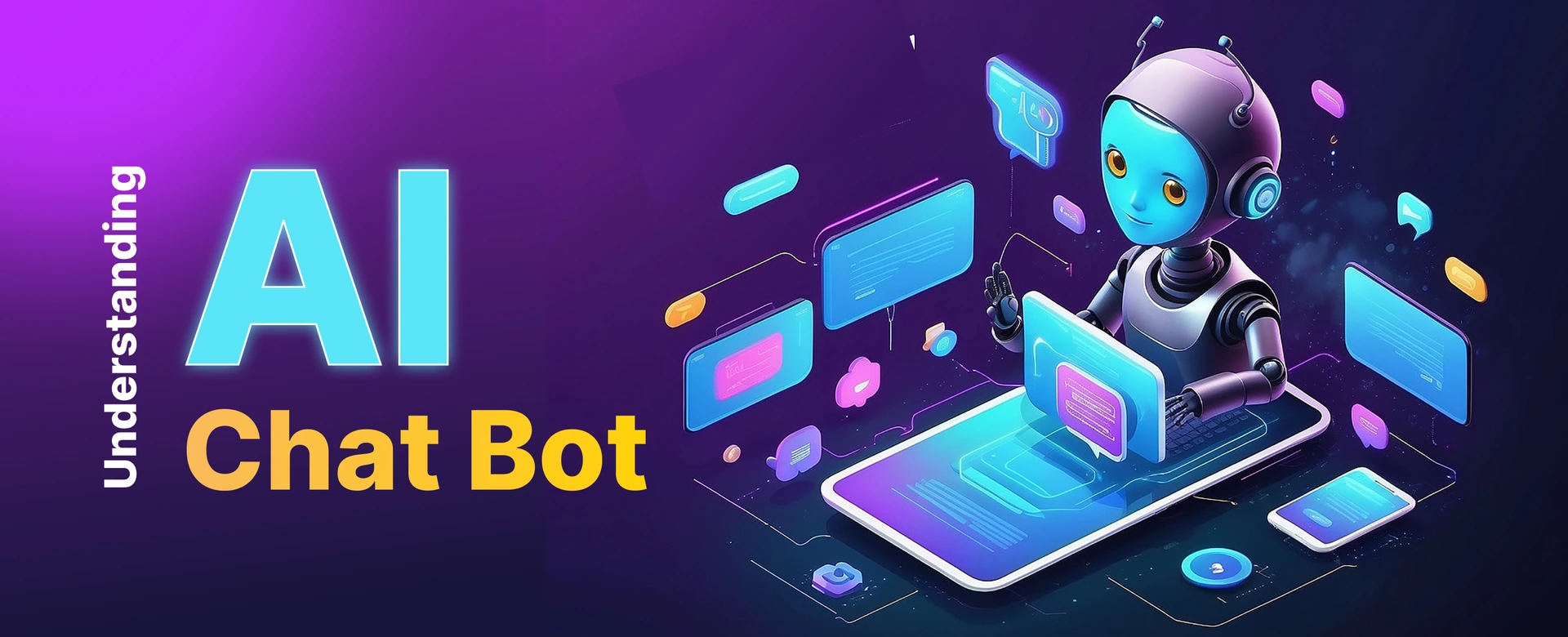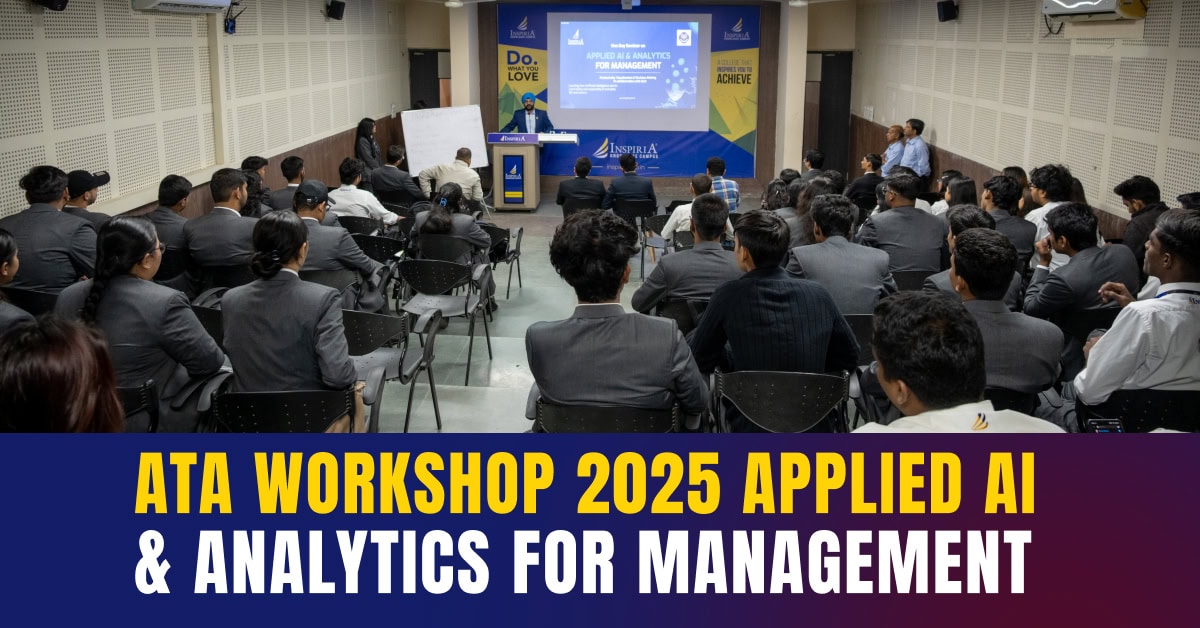In the realm of Artificial Intelligence (AI), few innovations have captured the imagination quite like ChatGPT. This cutting-edge conversational agent, powered by OpenAI’s state-of-the-art natural language processing (NLP) models, has set a new standard for human-like interactions with machines. This has not only made ai chat a reality but opened the door to conversational ai. But behind its seemingly effortless ai tool, there lies a wondrous, round breaking artificial intelligence based technology that has made ChatGPT – like chatbots possible.
Decoding ChatGPT-like Chatbots through Data Science banter lies a complex web of algorithms, data, and ingenuity, all orchestrated by the field of data science. In this blog, we’ll delve into the fascinating world of ChatGPT-like chatbots, exploring how data science unlocks their magic in the realm of conversational AI.
What is Chatbot?
A chatbot AI is a highly upgraded version of a chatbot. A conversational AI chatbot is simply a computer program that processes human conversation (in text or verbal mode). A chatbot enables a human being to have a basic level of interaction with digital devices in simple question-answer format. Most customer service web pages have a chat bot that have a message interface that allows text based conversation usually in question-answer format. As a computer program chatbots are pretty elementary compared to an ai chatbot. A basic level chatbot has a pre-listed set of answers to typical questions relating to standard customer inquiries.
If the question asked does not tally with the pre-listed questions in the chatbot, the user is guided to a set of related, pre-listed, customised questions with an instruction like “Choose any of the following for an answer”. If there is no pre-listed answer to any question asked by a user/customer, the chatbot then provides phone numbers with the request to call for further information. Thus chatbots are simple computer programs with limited conversational capabilities. In comparison ai chatbots are far superior in terms of conversational capabilities as an ai chatbot is capable of simulating real-life human conversation.
Understanding ChatGPT
Chat GPT is an artificial intelligence driven program created by OpenAI that enables human-like conversation between the user and the Chat-GPT app. generates dialogue. Using ground break technology, the highly capable ai powered chatbots like ChatGPT uses machine learning algorithms to process and analyze huge amounts of data to generate human like responses to user inquiries. This path breaking aspect of this language processing program is its apparent ability to understand human language as it is spoken and written. Anyone can type in a question, and ChatGPT provides easily understandable answer – in a different formats with precise stipulations. For example, if you askChatGPT a question like , “Explain how global warming affects glaciers?”, Chat GPT will provide a convincing answer.
Chatbot AI
Imagine talking to a robot that can chat with you just like a human. That’s what ChatGPT-like chatbots are all about! These generative ai powered chatbots are capable of having conversations with people using regular language, just like how we talk to each other. They’re so smart that they can understand what you’re saying and respond back in a way that sounds just like a person.Inspired by the success of ChatGPT, developers aim to replicate its conversational prowess through innovative applications of data science.
Is AI Chatbot free?
Chatbots come free in the starting version. However for advanced customization and configuration options, such as custom branding, data sources, connections, you need the premium version whicih has to be purchased. A chatbot is a common feature in all customer service web pages.
The best AI chatbots?
AI Assistants or chatbots have evolved into human-like conversational agents that successfully address more than two-third of customer queries. Some of the best AI Chatbots in Indiai are:-
- Self-Serve AI Assistant by Upstox
- Kaya Virtual Assistant by Kotak Life Insurance
- Jio Digital Leverages WhatsApp for Higher Engagement
- Railway Food Order & Delivery by Zoop India
- MyGov Corona Helpdesk WhatsApp Chatbot by Government of India
Which is the famous AI Chatbot?
The ChatGPT AI is considered one of the most famous ai chatbots. If you want to interact with any company or service provider in a digital platform, bots like Chat GPT AI serves an excellent app for the purpose of answering your queries and more. For an truly empowered and enhanced digital interaction esperience, ai chatbots are becoming the trend.
What is ChatGPT AI?
Chat GPT AI is an ai chatbot that is powered by Chat GPT’s AI platform. You can use Chat GPT’s enhanced ai chatbot to get highly efficient human like responses to queries.
The Role of Data Science
Data science serves as the backbone of a ChatGPT-like chatbot ai, shaping every stage of their development and evolution. Data science helps us to learn more about the way AI works.In AI software engineering, one of the most challenging roles of a data scientist is to collect and prepare the datasets that will be used for training and testing of AI models. Data collection involves searching and retrieving relevant data sources, including web pages, databases, APIs and sensors. Data preparation is a process of processing and integrating the data to incorporate it with AI algorithms. All this effort helps to createf AI driven apps that deliver near human like conversational capabilities. People will be able to obtain high efficiency level performance in customer service from ai powered chatbots.
Data Collection and Preparation
The journey begins with the meticulous collection and preprocessing of vast datasets comprising text conversations. These datasets serve as the training grounds for chatbots, providing the raw material from which they learn to understand and generate human-like responses.
Model Architecture and Training
Data scientists employ sophisticated deep learning architectures, such as transformers, to train chatbot models on the collected data. Through iterative training and optimization processes, these models learn to capture the nuances of human language and generate contextually relevant responses.
Natural Language Understanding (NLU)
Central to the chatbot’s functionality is its ability to comprehend user input. Data science techniques, including semantic analysis and named entity recognition, enable the chatbot to extract meaning and context from text data, facilitating more accurate responses.
Language Generation
Armed with a rich understanding of language, the ai chatbot employs data-driven approaches to generate human-like responses. By modeling the probability distribution of words and phrases,ai chatbots craft coherent and contextually appropriate replies that resonate with users and help you to have seamless communication with tech service providers.
Continuous Learning and Improvement
Data science empowers a new chatbot to get started and evolve over time through continuous learning and adaptation. Through mechanisms like reinforcement learning and transfer learning, the chatbot refine their conversational skills, staying abreast of evolving language trends and user preferences.
Data Science and Artificial Intelligence – Comparative Analysis
Data science integrates diverse techniques and processes, to extract meaning from from both structured and unstructured data. The domain spans across several sectors leveraging statistical analysis, data mining. machine learning and visualization techniques. Data Science detects patterns, trends, and relationships within big datasets.
Data science combines mathematics, statistics, computer science, and domain expertise to tackle complex analytical problems. Data scientists utilize programming languages such as Python, R, and SQL to manipulate data, build predictive models, and perform statistical analysis. They also employ tools and techniques such as data cleaning, feature engineering, and model validation.
Artificial Intelligence refers to devices and systems that can near imitate human intelligence which seem to replicate human communication behaviors encompassing technologies such as Machine Learning (ML), NLP, computer vision, robotics, and expert systems.
Application of Data Science and AI
1. Healthcare
In the field of medical imaging analysis, predictive analysis and personalized medicine, AI has proved to be a massive game changer. AI-driven diagnostic tools are applied on X-rays, MRIs, and CT for more accurate results.
2. Finance
In the financial sector, AI is used for algorithmic trading, risk minimization and fraud detection. AI driven trading algorithms process market data effectively and instantaneously for profitable trading swiftly and precisely.
3. Customer Service
As stated, AI has rewritten the way customer service is rendered through virtual assistants and ai chatbots.
4. Marketing
AI enables targeted advertising, customer segmentation, and predictive analytics using data about customer preferences, purchase history, and online behavior to deliver targeted and customised advertisements.
5. Autonomous Vehicles
In the automobile sector, AI powered systems enable automated road navigation, obstacle detection and traffic rules compliance.
6. Manufacturing
AI enhances manufacturing processes by predictive maintenance, quality control, and supply chain optimization solutions.
7. Cybersecurity
In the world of cybersecurity, AI enables threat and anomaly detection, and automated incident response. With AI-driven cybersecurity apps, it is possible to process network traffic, identify suspicious activities, and address cyber threats in real-time, thus effectively preventing from cyberattacks and data breaches.
Data Science Courses
There are different courses for students seeking to aim for a career in data science based artificial intelligence. One can do a B Sc. in Data Science or a BCA with Data Science Specialization. Both courses are equally effective in training students as a Data Scientist or Data Analyst, However the BCA syllabus is more appropriate and relevant for Data Science students.
Career in Data Science
The combination of BCA (Bachelor of Computer Applications) and knowledge of data analysis with R programming opens up a plethora of opportunities in the job market in the area of exploratory data analysis. Many industries, including finance, healthcare, marketing, and e-commerce, require professionals who can analyze large datasets and derive meaningful insights.
As a professional with expertise in data analysis using R, you can work as a data analyst, data scientist, business intelligence analyst, or research analyst. These roles involve tasks such as data preprocessing, data cleaning, statistical analysis, visualization, and model building. Additionally, with the growing demand for data-driven decision-making, there is a constant need for professionals who can translate data into actionable insights. Let us analyse the job role of various types of data professionals:-
Data Analyst
A data analyst is a professional who collects, cleans, and interprets data sets to address a problem. Data analysts work in various sectors such as science, business and finance, medicine, science and government business, finance, criminal justice, science, medicine, and the government sector. The main function of data analyst is to optimise business operations, minimise costs through better and more informed decision making enable by effective data processing. Data analysis involves the following five steps: Data identification, Data Collection, Data Cleaning, Data Analysis and Data interpretation.
Data Scientist
The job of a Data Scientists is to convert raw data into meaningful information that businesses can use to optrimise their operations. The data scientist extracts, analyses and interprets large amounts of data different sources, using data mining, algorithms, machine learning, artificial intelligence and statistical tools, to make it for comprehensible for businesses. Data Scientists work in Academia, Finance, Scientific Research, Information Technology and other sectors.
Business Intelligence Analyst
The proliferation of internet based devices, ever-increasing internet users, and a significant jump in social media engagements are opening opportunities for business organisations to collect huge amounts of diverse data. Industry experts believe data as the ‘new oil’ that will not only enhance organizational efficiency but determine crucial business outcomes in today’s information age.
Effective data processing and management will maximise performance, profitability, and overall succees of businesses. All this has brought Business Intelligence (BI) as a crucial player in present day business functioning. Business Intelligence is the operation and management of data collection and processing tools and systems which include tools for data modelling, data visualisation, decision-support management, database management and data warehousing.
To further enhance your career prospects, you can also consider obtaining certifications in data analysis with R programming. Certifications, such as R Programming Certification and Data Science Certification, can demonstrate your proficiency in R and increase your credibility in the job market.
Benefits and Limitations of AI Chatbots
Benefits of AI Chatbots
Recent research has predicted that the global AI chatbot market will be worth $27.2 billion by 2030. AI chatbots are being increasingly deployed in present day businesses. This is because by engaging with users in a real human like conversation AI chatbots deliver quick solutions solutions to customer queries.
Using natural language processing (NLP), these ai chatbots are able to understand human language to gather information. Though they are unable to gauge the intent and context of a question they do provide relevant answers using their pool of processed data. Moreover, these chatbots can also automatically adapt themselves to new data sets learning from experience, and updating themselves for future user queries. The different sectors where AI is playing path-breaking roles are in the realm of :-
- In research and content creation, AI chatbots can quickly create content by collecting and processing information.
- In marketing and sales professionals, AI chatbots can produce and deliver new content utilizing marketing and sales data from the internet. These are used for new marketing campaigns on digital platforms.
- In software development, AI chatbots can optimise online resources for coding from scratch or rewriting existing codes.
Limitations of AI Chatbots
1. Questionable Academic Credibility
There are concerns on two points here (i) The reliability of the data that Chat GPT uses since use to process information for answering queries or providng informational/academic content and (ii) The fear that Chat GPT will promote plagiarism affecting academic integrity.
2. The Question of Accuracy and Authenticity.
While the text material that ChatGPT provides may be very well written and sound convincing, there is no guarantee it is correct. The AI tool after all processess the material available in the internet and the software is likely to rely on the vast majority of available content which is not necessarily the most accurate.
3. The Question of Bias
The data sets on which AI chatbots are trained on may contain biases,which in turn may produce bias in the responses produced by Chat GPT. These biases may lead to discrimination against marginalised groups or opinions while reaffirming one sided elitist perspectives.
4. Information Replacing Knowledge.
Chat GPT content consist solely of text which are bereft of context or circumstantial factors. Though it can well read texts, it is unable to comprehend sarcasm or irony and can read a sarcastic text literally. Therefore its text may not have the depth of knowledge or wisdom even though it might appear to hae found the right answer.
5. Inability to Multitask and Understand Context
ChatGPT can only address up to one query at a time. If asked multiple questions at a time, ChatGPT may be unable to provide an answer.
ChatGPT driven ai chatbots thus can go complete off the mark while replying to a query as these chatbots are unable to understand the context and the nuances of human language.Ad stated, if a student uses humor or sarcasm in a question, ai chatbots can not pick up on that and provide an irrelevant response.
6. The Emotional Intelligence (AI) Question
Emotional intelligence (EI) plays a crucial role in all human endeavours including academic pursuits.. A human educator can understand the emotions of students and respond accordingly. An educator is capable of providing emotional support in challenging times. It isn’t the case with ai chatbots like ChatGPT, which is unable to understand human emotions and empathy. An ai chatbot that may appear to seem empathetic sometimes invariably fails to respond appropriately to complex human emotions.
Risks of Over-dependence on Chatbots
This over-dependence on technology can also lead to a lack of creativity and innovation. When we rely on intelligent e-assistants and chatbots to solve problems, we are not using our minds to develop solutions. This can stifle our ability to think outside the box and develop novel ideas.
Another potential drawback of over-dependence on technology is the loss of personal touch. While smart e-assistants and chatbots can help provide quick and efficient service, they lack the human touch that can be important in certain situations.
Which Is Better — AI Chatbots or Rule-based Chatbots?
AI chatbots conversations seem more natural and seamless, whereas rule-based chatbots might appear mechanical/unintelligent. Conversational AI chatbots leverage artificial intelligence, machine learning.
In contrast, rule-based chatbots work on pre- scripted conversation models. Their functional capabilities are limited to mere text prompts. However they are quickly set up and deploed and less complex compared to ai chatbots.
Summing up
Thus path breaking AI apps cannot function without data science since it is the collection, processing, cleaning of data that data sciences does which provides the data resources or datasets upon which AI works. The whole process is summed up as:-
- Data gathering and processing
- Deployment of Deep Learning Architecture
- NLU Function
- Human Like Language Generation
- Contant Process of Learning and Development
- Data Science and Artificial Intelligence – Comparative Analysis
Data science integrates diverse techniques and processes, to extract meaning from from both structured and unstructured data. The domain spans across several sectors leveraging statistical analysis, data mining. machine learning and visualization techniques. Data Science detects patterns, trends, and relationships within big datasets.
Data science combines mathematics, statistics, computer science, and domain expertise to tackle complex analytical problems. Data scientists utilize programming languages such as Python, R, and SQL to manipulate data, build predictive models, and perform statistical analysis. They also employ tools and techniques such as data cleaning, feature engineering, and model validation.
Artificial Intelligence refers to devices and systems that can near imitate human intelligence which seem to replicate human communication behaviors encompassing technologies such as Machine Learning (ML), NLP, computer vision, robotics, and expert systems.
Conclusion
In conclusion, the development of ChatGPT-like an ai chatbot represents a remarkable convergence of data science and AI. Through the lens of data science, we gain insight into the inner workings of these intelligent agents, revealing the intricate interplay between algorithms, data, and human ingenuity. As the field continues to advance, the fusion of data science and conversational AI holds boundless potential, ushering in a new era of natural and engaging interactions between humans and machines. ai powered chatbots have proved to be game changers with near human conversational capabilities.









One Response
I find this a thoughtful and well-rounded conclusion. It nicely highlights how data science and AI come together to create powerful tools like ChatGPT, and I agree—AI chatbots are definitely reshaping how we interact with technology in more natural, human-like ways.